Kazakh-American University Nurakhmetova A. E. Computer can


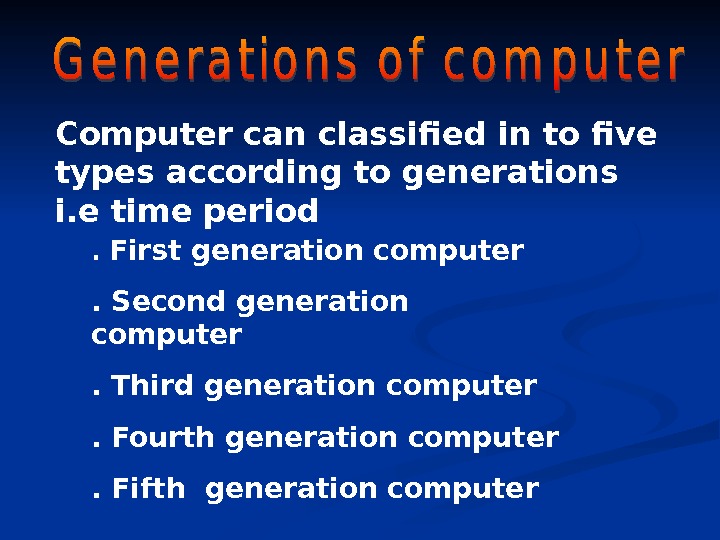
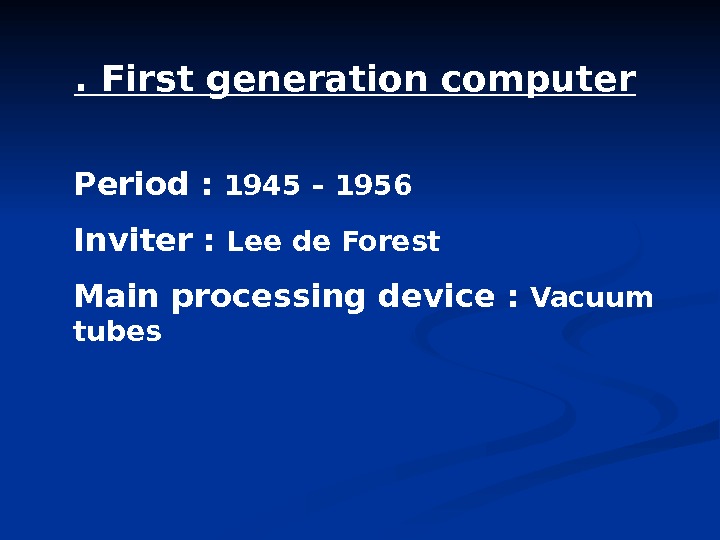

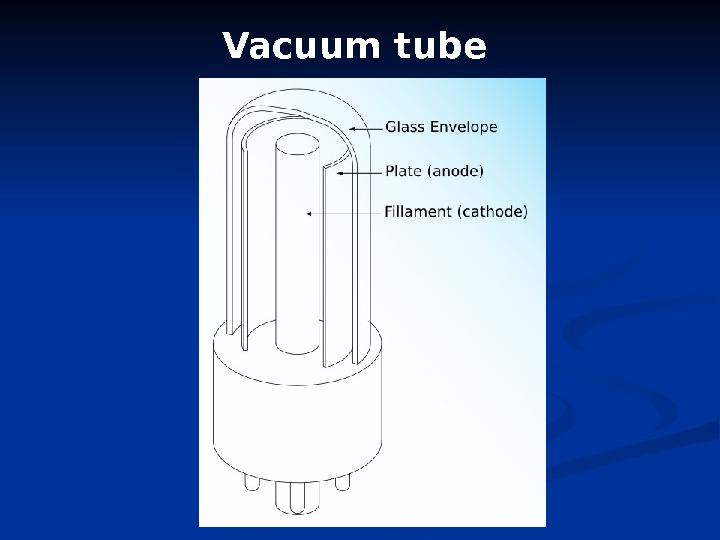
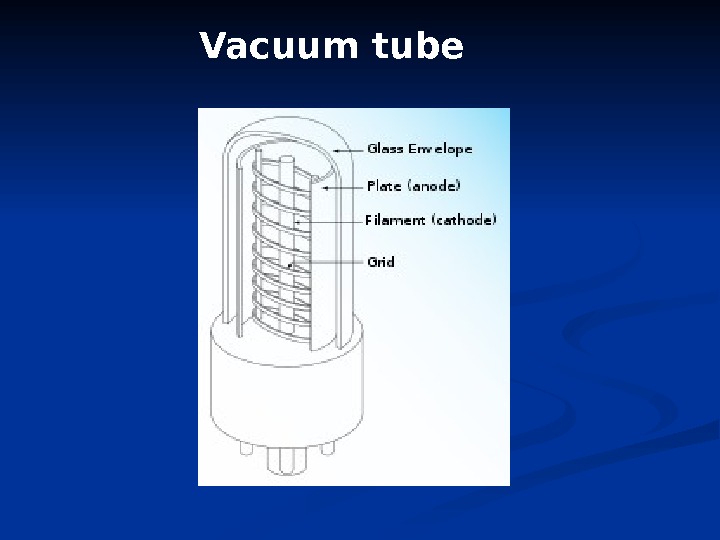
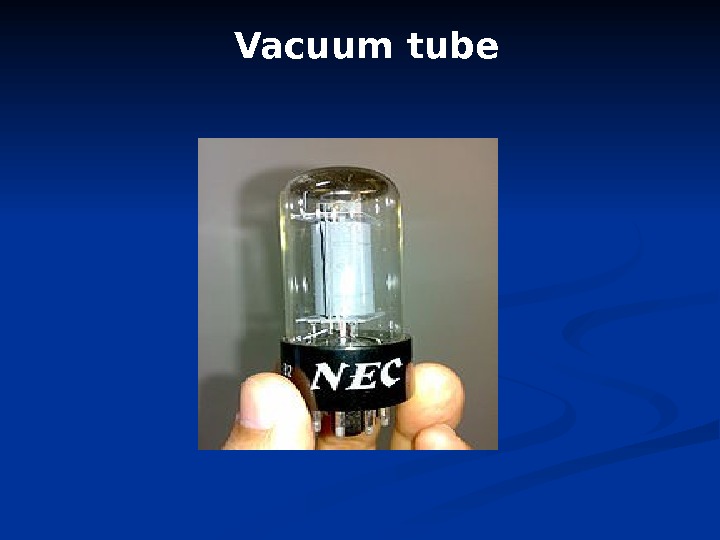
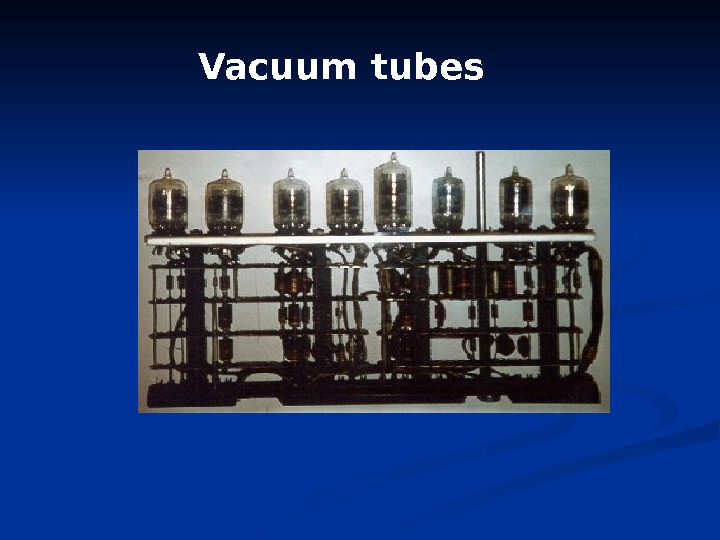
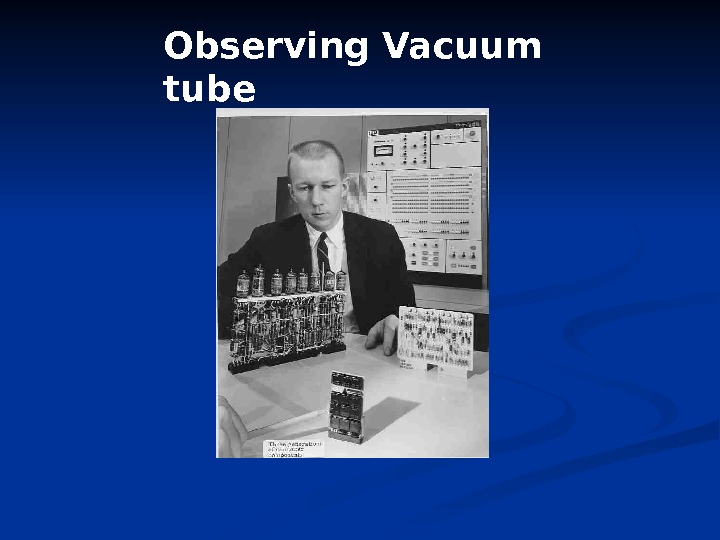
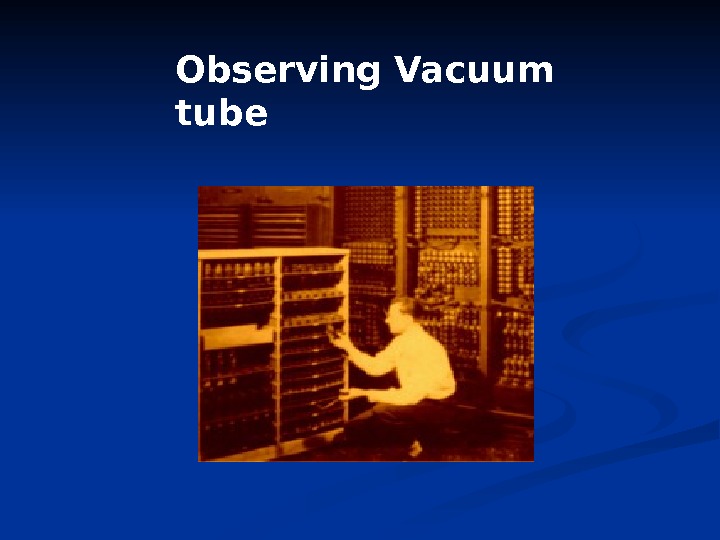
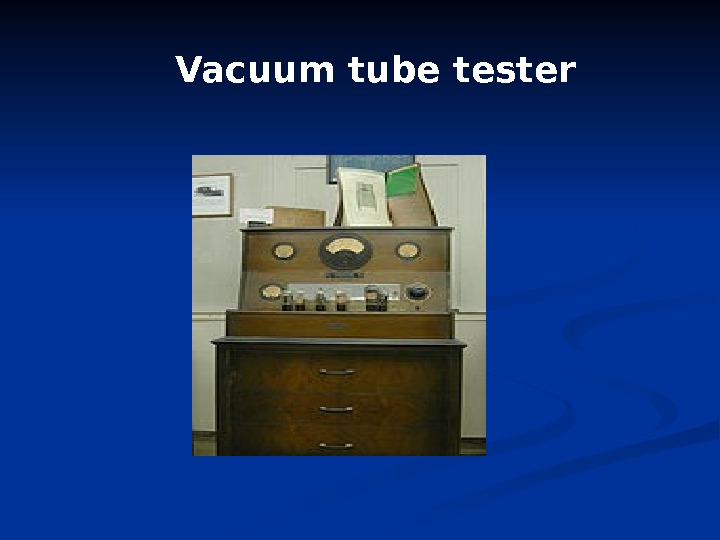
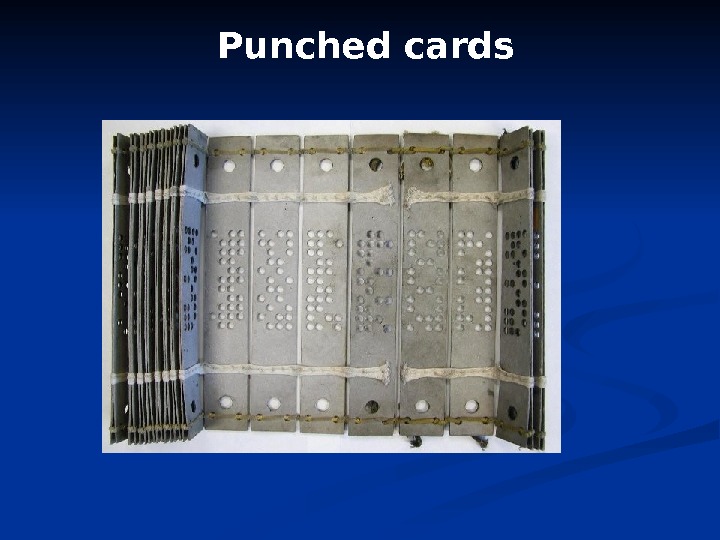
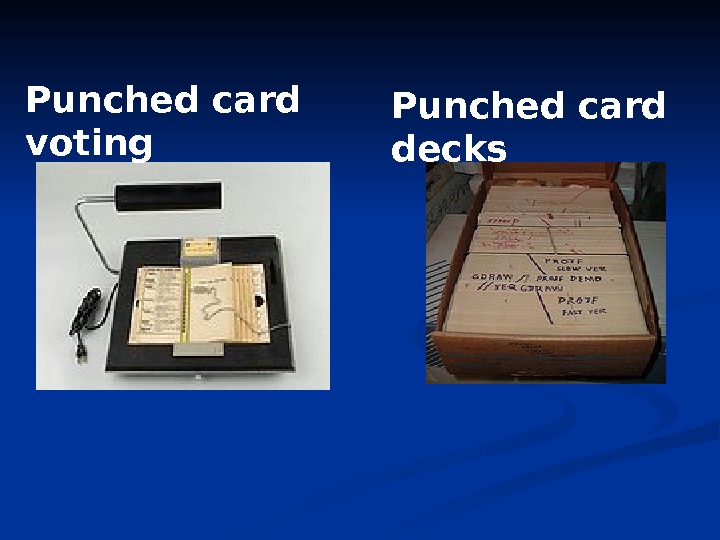


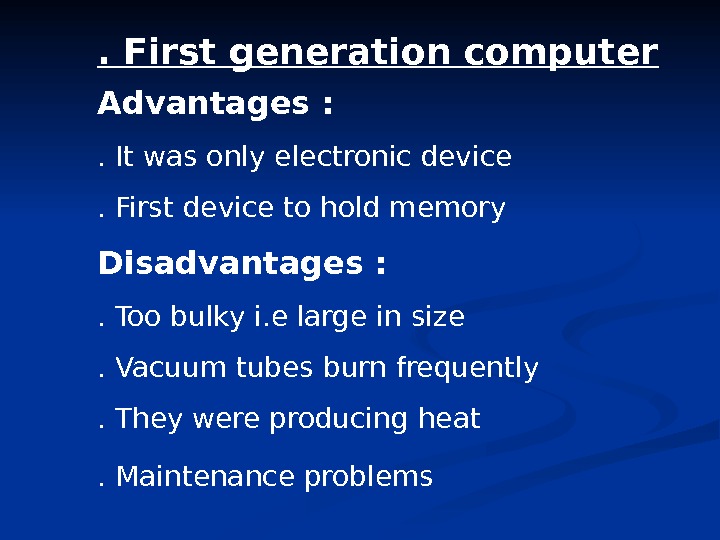
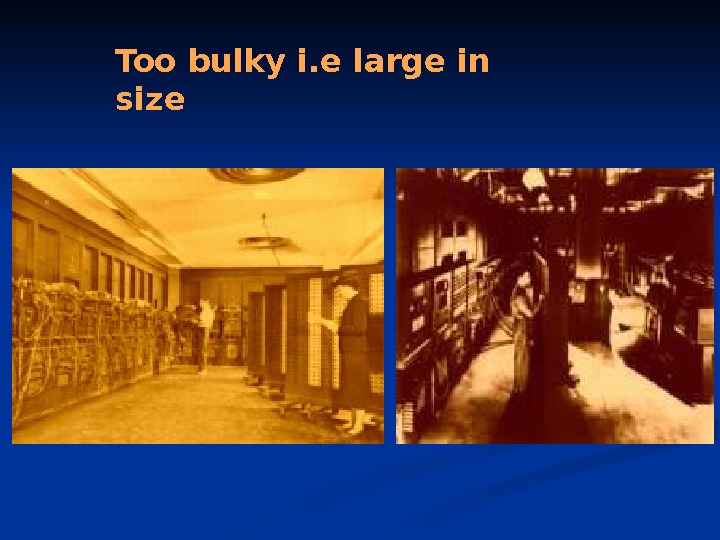
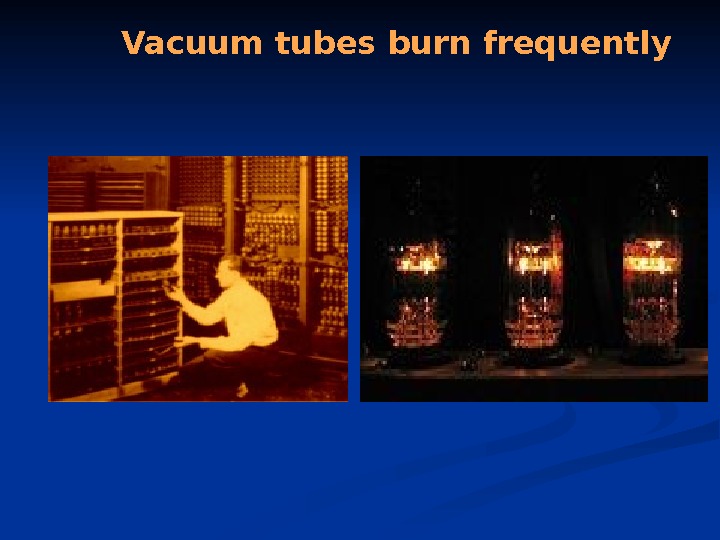
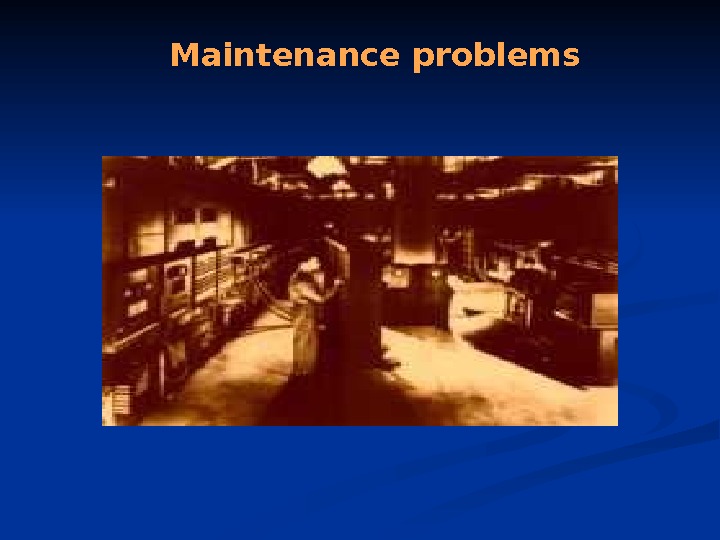
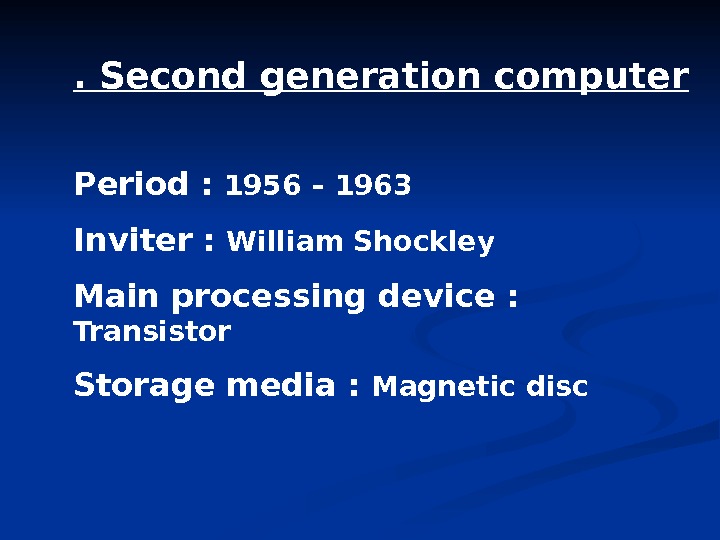
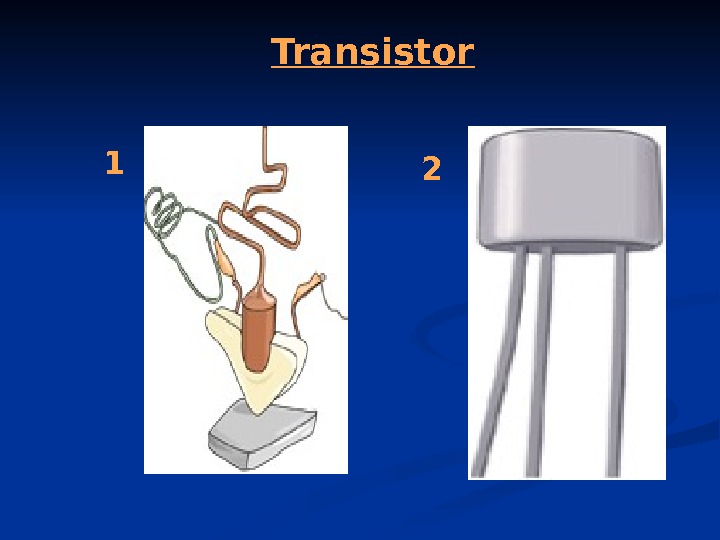
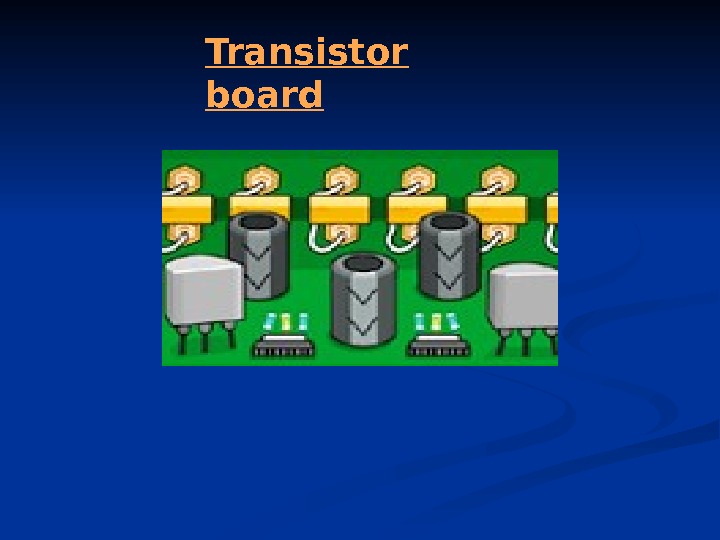
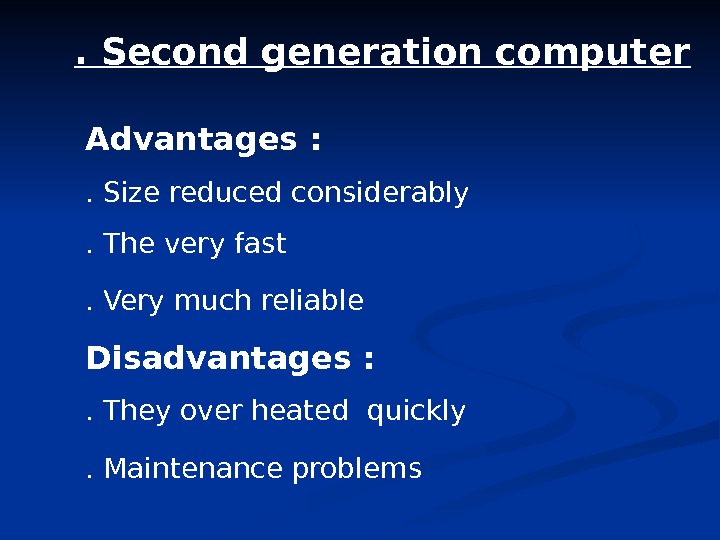
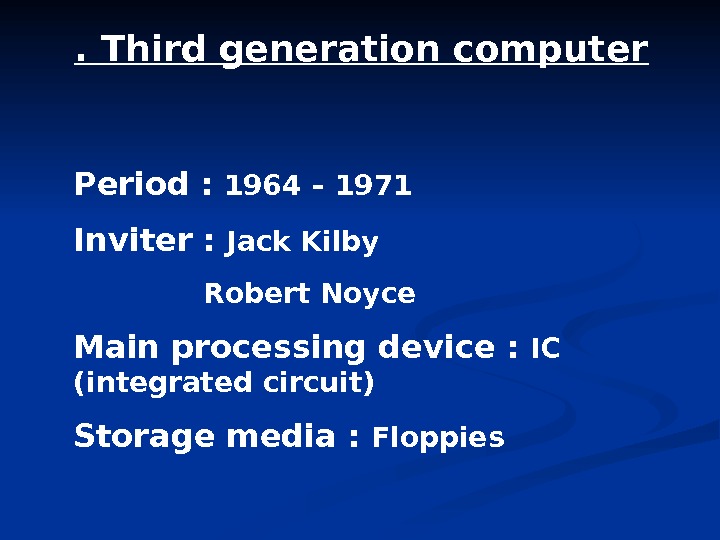
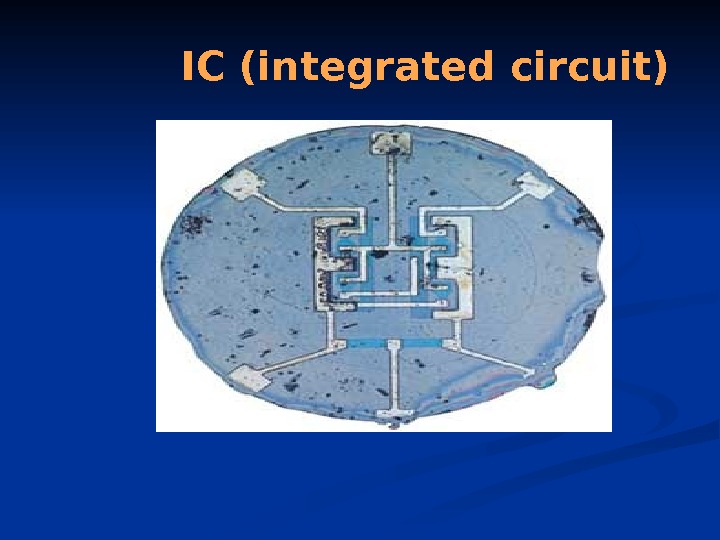
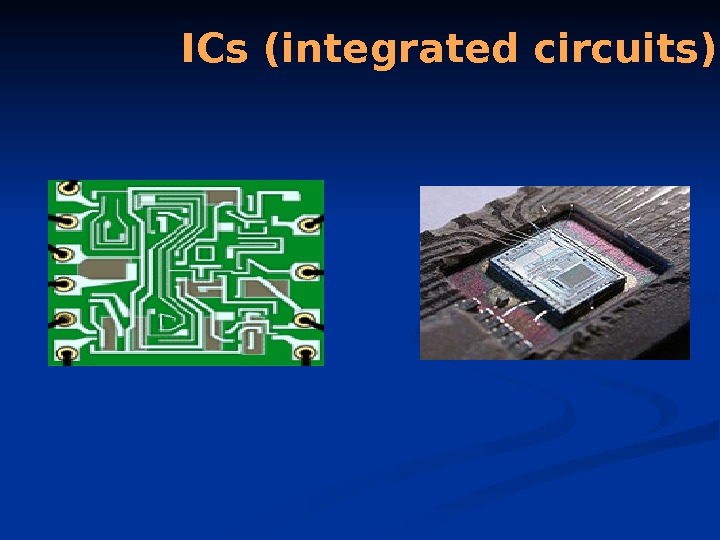
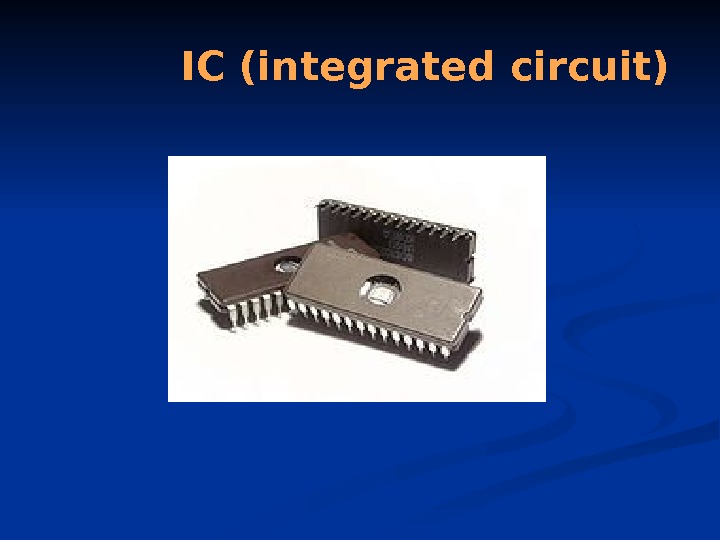

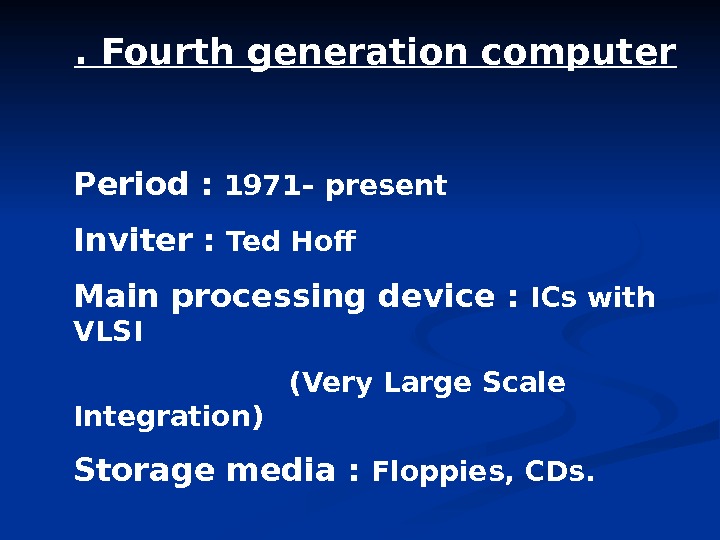
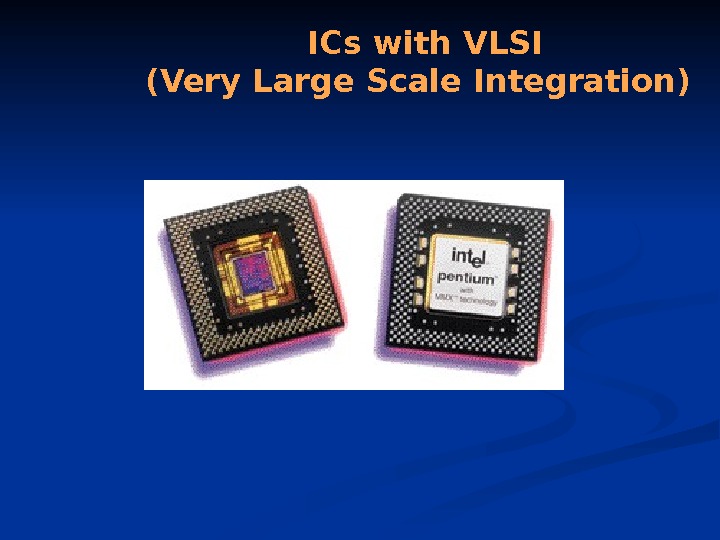
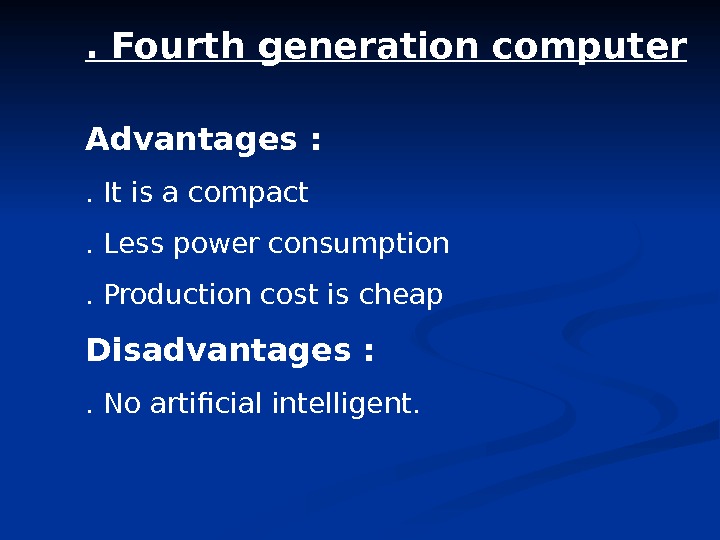



generations_of_computer.ppt
- Размер: 772.5 Кб
- Количество слайдов: 34
Описание презентации Kazakh-American University Nurakhmetova A. E. Computer can по слайдам
 Kazakh-American University Nurakhmetova A. E.
Kazakh-American University Nurakhmetova A. E.
 Computer can classified in to five types according to generations i. e time period. First generation computer . Second generation computer. Third generation computer. Fourth generation computer. Fifth generation computer
Computer can classified in to five types according to generations i. e time period. First generation computer . Second generation computer. Third generation computer. Fourth generation computer. Fifth generation computer
 . First generation computer Period : 1945 – 1956 Inviter : Lee de Forest Main processing device : Vacuum tubes
. First generation computer Period : 1945 – 1956 Inviter : Lee de Forest Main processing device : Vacuum tubes
 Vacuum tube
Vacuum tube
 Vacuum tube
Vacuum tube
 Vacuum tube
Vacuum tube
 Vacuum tube
Vacuum tube
 Vacuum tubes
Vacuum tubes
 Observing Vacuum tube
Observing Vacuum tube
 Observing Vacuum tube
Observing Vacuum tube
 Vacuum tube tester
Vacuum tube tester
 Punched cards
Punched cards
 Punched card voting Punched card decks
Punched card voting Punched card decks
 Punched cards models
Punched cards models
 Large punched cards
Large punched cards
 . First generation computer Advantages : . It was only electronic device. First device to hold memory Disadvantages : . Too bulky i. e large in size. Vacuum tubes burn frequently. They were producing heat. Maintenance problems
. First generation computer Advantages : . It was only electronic device. First device to hold memory Disadvantages : . Too bulky i. e large in size. Vacuum tubes burn frequently. They were producing heat. Maintenance problems
 Too bulky i. e large in size
Too bulky i. e large in size
 Vacuum tubes burn frequently
Vacuum tubes burn frequently
 Maintenance problems
Maintenance problems
 . Second generation computer Period : 1956 – 1963 Inviter : William Shockley Main processing device : Transistor Storage media : Magnetic disc
. Second generation computer Period : 1956 – 1963 Inviter : William Shockley Main processing device : Transistor Storage media : Magnetic disc
 Transistor
Transistor
 Transistor board
Transistor board
 . Second generation computer Advantages : . Size reduced considerably . The very fast. Very much reliable Disadvantages : . They over heated quickly . Maintenance problems
. Second generation computer Advantages : . Size reduced considerably . The very fast. Very much reliable Disadvantages : . They over heated quickly . Maintenance problems
 . Third generation computer Period : 1964 – 1971 Inviter : Jack Kilby Robert Noyce Main processing device : IC (integrated circuit) Storage media : Floppies
. Third generation computer Period : 1964 – 1971 Inviter : Jack Kilby Robert Noyce Main processing device : IC (integrated circuit) Storage media : Floppies
 IC (integrated circuit)
IC (integrated circuit)
 ICs (integrated circuits)
ICs (integrated circuits)
 IC (integrated circuit)
IC (integrated circuit)
 . Third generation computer Advantages : . ICs are very small in size . Improved performance . Production cost cheap Disadvantages : . ICs are sophisticated
. Third generation computer Advantages : . ICs are very small in size . Improved performance . Production cost cheap Disadvantages : . ICs are sophisticated
 . Fourth generation computer Period : 1971– present Inviter : Ted Hof Main processing device : ICs with VLSI (Very Large Scale Integration) Storage media : Floppies, CDs.
. Fourth generation computer Period : 1971– present Inviter : Ted Hof Main processing device : ICs with VLSI (Very Large Scale Integration) Storage media : Floppies, CDs.
 ICs with VLSI (Very Large Scale Integration)
ICs with VLSI (Very Large Scale Integration)
 . Fourth generation computer Advantages : . It is a compact. Less power consumption . Production cost is cheap Disadvantages : . No artificial intelligent.
. Fourth generation computer Advantages : . It is a compact. Less power consumption . Production cost is cheap Disadvantages : . No artificial intelligent.
 . Fifth generation computer Period : present and beyond Main processing device : ICs with parallel processing Storage media : Video disks Advantages : . Artificial intelligence . Expert system
. Fifth generation computer Period : present and beyond Main processing device : ICs with parallel processing Storage media : Video disks Advantages : . Artificial intelligence . Expert system
 . First generation computer. Second generation computer. Third generation computer. Fourth generation computer. Fifth generation computer Vacuum tubes Transistors ICs with VLSI ICs with parallel processing
. First generation computer. Second generation computer. Third generation computer. Fourth generation computer. Fifth generation computer Vacuum tubes Transistors ICs with VLSI ICs with parallel processing


